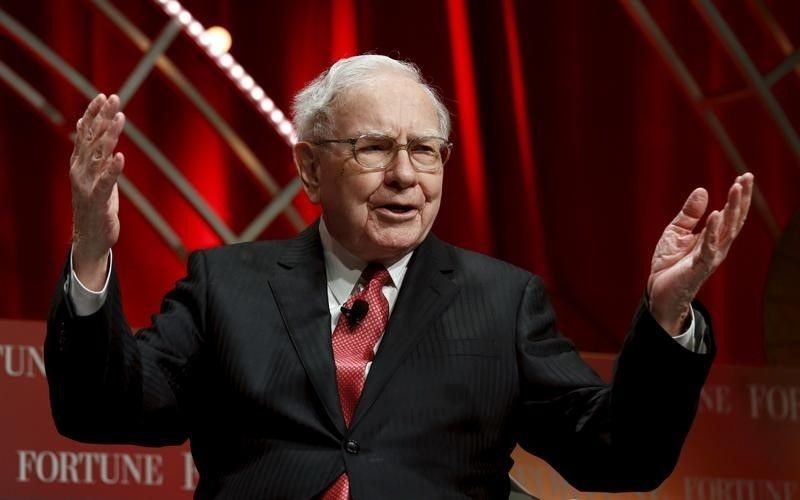
This article originally appeared on the Motley Fool.
Hillary Clinton supporter and billionaire investor Warren Buffett doesn't believe the wealthiest Americans (himself included) are paying enough taxes. Here's how he and the Democratic nominee for president hope to address the issue:
The Buffett Rule
In a nutshell, the "Buffett Rule" is the idea that no household with income more than $1 million per year should pay a smaller effective tax rate than middle-class families. This has evolved to mean that no million-dollar earners should pay less than 30 percent of their income to taxes. President Obama has actually called for this several times, as well.
Buffett has famously said that he pays a lower effective tax rate than his secretary, and that this is a glaring example of what's wrong with the American tax system. And such a low tax rate isn't unique to Buffett. According to a 2012 White House report, these are some of the reasons why the Buffett rule is badly needed:
- The 400 richest American households paid less than 23 percent of their income in taxes in 2013. This has gone up considerably under the Obama administration—it was 18 percent in the 2008 tax year.
- Incomes of the richest Americans have quadrupled since 1979, while middle-class incomes have risen by just 40 percent.
- In 2009, 1,470 households that made more than $1,000,000 paid absolutely no federal income taxes whatsoever.
- About one-fourth of millionaires pay a lower tax rate than the average middle-income taxpayer.
How Clinton would implement the Buffett rule
Clinton's tax plan actually goes beyond the Buffett rule when it comes to taxing the rich. In a statement in response to the average tax rate paid by the wealthiest U.S. households, Clinton said, "As president, I'll do what it takes to make sure the super-wealthy are truly paying their fair share."
According to Clinton's campaign website, her tax plan would make the following changes to ensure the wealthy cannot avoid paying the taxes they owe:
- Formal implementation of the Buffett rule, setting a 30 percent floor on the effective tax rate paid by million-dollar income households. This would be a set-in-stone rule to ensure fairness.
- A multi-millionaire "Fair Share Surcharge." This 4 percent additional tax would apply to taxpayers making more than $5 million per year. This would only affect the top 0.02 percent of taxpayers.
- Closing tax loopholes, such as the Bermuda reinsurance loophole and the Romney loophole, which would subject more income to tax. Without getting into a long explanation, these loopholes allow the wealthy to exploit the tax code to shelter large amounts of income from taxation.
- Increase taxes on capital gains, particularly on investments held for just a few years. For high earners, this would impose a capital gains tax rate of 47.4 percent on investments held for less than two years (including the net investment income tax and the Fair Share Surcharge discussed earlier), and would gradually decrease for investments held longer. In order to be eligible for the lowest rate (20 percent before surtaxes), investments would need to be held for longer than six years. This is designed to reward long-term investors and treat short-term profits more like ordinary income.
How would Donald Trump ensure tax fairness?
Donald Trump's tax plan is very different than Clinton's. Instead of raising taxes on the rich, Trump's plan aims to reduce taxes on everybody, with a particular emphasis on the lower-income brackets. While he has proposed closing some loopholes, his basic philosophy on taxation is different.
Clinton believes that, by taxing the rich and investing that money in America, it can create significant job and wage growth. Donald Trump believes that, if you put more money in the pockets of businesses and wealthy investors, job growth will come naturally and be more sustainable.
Who's right? That's up to you to decide.
Uncommon Knowledge
Newsweek is committed to challenging conventional wisdom and finding connections in the search for common ground.
Newsweek is committed to challenging conventional wisdom and finding connections in the search for common ground.
About the writer
To read how Newsweek uses AI as a newsroom tool, Click here.








